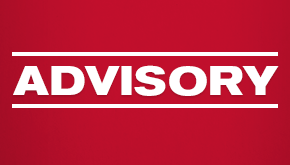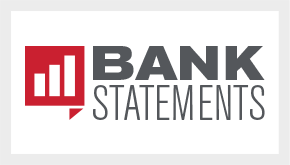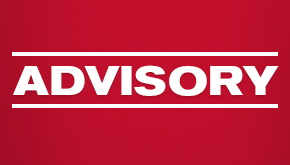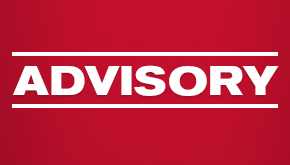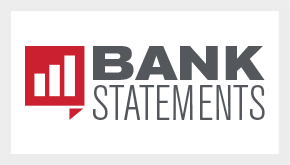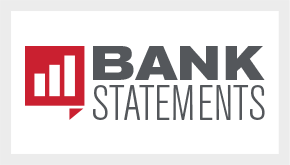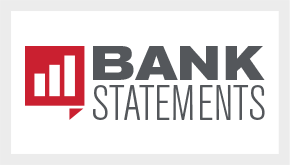The Corporate Transparency Act – What You Need to Know
On January 1, 2024, the Corporate Transparency Act (CTA) will become effective and impose new disclosure obligations on most entities. The stated purpose of the CTA is to “help prevent and combat money laundering, terrorist financing, corruption, tax fraud and other illicit activity while minimizing the burden on entities doing business in the United States.”
While businesses in other countries and highly regulated businesses in the U.S. are already subject to beneficial ownership reporting requirements, the CTA is the first U.S. law that requires most businesses to report their beneficial ownership. Business owners need to be familiar with these new disclosure requirements and begin developing a compliance and reporting process.
Our team has outlined a comprehensive Q&A to help you navigate these changes.
What is the CTA?
Unless falling within an excluded class, the CTA requires business entities to:
- report beneficial ownership information (BOI) to the U.S. Department of the Treasury's Financial Crimes Enforcement Network (FinCEN);
- disclose information about the entity and who created the entity or registered it to do business in the U.S.; and
- update any previously reported information as changes occur.
Who is required to file reports under the CTA?
The CTA requires all reporting companies to file BOI reports. A reporting company is:
- any U.S. entity that was formed by filing a document with a Secretary of State or similar office, including limited liability companies, limited liability limited partnerships, business trusts and most limited partnerships but generally excluding sole proprietorships and general partnerships; or
- any foreign entity that registers to do business in the U.S. by a filing with a Secretary of State or a similar office.
The CTA excludes certain entities from the definition of reporting companies. Entities falling within the exclusion are typically (but not always) highly regulated and/or subject to different ownership reporting requirements. Noteworthy classes and categories include:
- large operating companies;
- public companies;
- inactive companies;
- investment companies and investment advisers;
- pooled investment vehicles;
- insurance companies and insurance producers;
- certain “highly regulated” entities, such as banks and credit unions;
- public accounting firms;
- tax exempt entities and entities assisting tax exempt entities;
- governmental authorities; and
- subsidiaries of certain exempt entities.
What does the CTA require reporting companies to report?
reporting companies must disclose information regarding:
- the reporting company, including its legal name, trade name(s), corporate address (not a P.O box or the formation agent), jurisdiction of formation, where it first registered in the U.S. (if a foreign entity), its TIN, EIN or similar number issued by a foreign taxing authority;
- its beneficial owners – either by providing a FinCEN identifier (FinCEN ID) for such individual, or such individual’s legal name, date of birth, street address and a “unique identifying number” and photograph from a current passport, or a State or Indian Tribe issued document; and
- its company applicants (generally the same information as beneficial owners), but only if created or registered on or after January 1, 2024.
Who is a beneficial owner?
A beneficial owner is an individual who, directly or indirectly:
- owns or controls at least 25% or more of the ownership interests of the reporting company; or
- exercises substantial control over the reporting company, such as a president, chief executive officer, chief financial officer, general counsel or other important decision-maker.
FinCEN has adopted rules and nonexclusive examples to help determine when an individual exercises “substantial control” over a reporting company and the percentage of ownership interests that are owned or controlled by an individual.
Beneficial owners exclude the following:
- minors;
- any individual acting as a nominee, intermediary, custodian or agent on behalf of another individual;
- certain employees who are not senior officers;
- heirs; and
- certain creditors of a reporting company.
Beneficial ownership includes the following:
- stock or equity ownership, even through multiple “layers” of entities;
- profits interests;
- voting rights;
- convertible instruments that may be converted into an ownership interest;
- options, put rights and call rights; and
- any other arrangement used to establish ownership of an entity.
Who is a company applicant?
A company applicant is the individual who:
- files an application to form an entity under the laws of a State or Indian Tribe;
- registers or files an application to register an entity formed under the laws of a foreign country to do business in the U.S. by filing a document with the Secretary of State or similar office; or
- is primarily responsible for directing or controlling the filing of the relevant document by another, if more than one individual is involved in the filing.
Only businesses formed on or after January 1, 2024, are required to disclose information about their company applicants, and only two company applicants must be included even if there are additional company applicants.
Company applicants must provide the same information required by beneficial owners, but company applicant information is not required to be updated.
When must affected businesses comply with the CTA?
Domestic reporting companies must file their initial reports as follows:
- for reporting companies in existence before January 1, 2024, on or before January 1, 2025;
- for reporting companies created on or after January 1, 2024, but before December 31, 2024, within 90 calendar days of the earlier of the date receiving actual or public notice that its creation has become effective; and
- for reporting companies created on or after January 1, 2025, within 30 calendar days of the earlier of the date receiving actual or public notice that its creation has become effective.
Foreign reporting companies must file their initial reports as follows:
- for entities that became reporting companies before January 1, 2024, on or before January 1, 2025;
- for entities that become reporting companies on or after January 1, 2024, but before December 31, 2024, within 90 calendar days of the earlier of the date it receives actual notice that it has been registered to do business or the date on which a Secretary of State or similar office first provides public notice that the foreign reporting company has been registered to do business; and
- for entities that become reporting companies on or after January 1, 2025, within 30 calendar days of the earlier of the date it receives actual notice that it has been registered to do business or the date on which a Secretary of State or similar office first provides public notice that the foreign reporting company has been registered to do business.
Any entity that no longer meets the requirement for an exemption must file its initial report within 30 days after the date it no longer meets the requirement for any exemption.
FinCEN will not accept reports from reporting companies until January 1, 2024.
When must a report be updated?
Updated and corrected reports must be filed:
- with respect to any information that was accurate when reported, within 30 days of the change to such information; and
- with respect to information that was inaccurate, within 30 days of the discovery of the inaccuracy.
The CTA provides a safe harbor from liability for filing a false report if the reporting company files a corrected report within 30 days of discovery of the inaccuracy and 90 days of the submission of the inaccurate report.
Where will reported information be maintained, and who will have access to the reported information?
Reported information will be maintained by FinCEN in a secure nonpublic database referred to as the Beneficial Ownership Secure System (BOSS).
Reported information may be disclosed by FinCEN on request only for statutorily authorized purposes and subject to strict appropriate protocols for protecting the security and confidentiality of such information to:
- U.S. federal agencies engaged in national security, intelligence or law enforcement activities, for use in furtherance of those activities;
- state, local or tribal law enforcement agencies, if a court of competent jurisdiction has authorized the law enforcement agency to seek the information in a criminal or civil investigation;
- federal agencies on behalf of non-U.S. law enforcement or a foreign prosecutor or judge;
- financial institutions subject to customer due diligence requirements, with the consent of the reporting company, to facilitate the financial institution's compliance with KYC requirements under applicable law;
- federal and state regulators assessing financial institutions for compliance with legally required customer due diligence obligations; and
- officers and employees of the Treasury Department for tax administration purposes.
BOI will not officially be made public. Penalties for unauthorized disclosure or use violations include:
- a civil penalty of up to $500 for each day that the violation continues or has not been remedied; and
- a fine of up to $250,000 and 5 years imprisonment (or $500,000 and 10 years imprisonment if also violating another U.S. law or as part of a pattern of illegal activity involving more than $100,000 in a 12-month period).
While FinCEN is creating a secure database to store all BOI reported, data privacy experts have concerns about the possibility of the database being hacked or otherwise breached.
What are the penalties for violating the CTA?
Penalties for reporting violations (i.e., providing or attempting to provide false or fraudulent BOI or failing to report complete or updated BOI to FinCEN) include:
- a civil penalty of up to $500 for each day that the violation continues or has not been remedied; and
- a fine of up to $10,000 and 2 years imprisonment.
The CTA represents a significant change in the routine reporting and compliance obligations of most companies. It is important for companies to be aware of their obligations and to put in place the safeguards necessary to ensure compliance. Our lawyers can assist you with determining how this new rule may impact your business and creating custom compliance programs. For more information specific to your business needs, please contact one of the listed authors or your regular AT lawyer.


